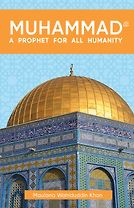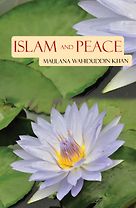then support of it will earn one no credit with God. Commitment to Islam as a message is an act carried out for God. Commitment to Islam as an institution, however, is all too often entered into for the
Popular search:
Search Results 9917 results


There was an Iranian governor there at the time of the advent of Islam. His name was Bazan and, after initial opposition, he later accepted Islam.
All this goes to show how far Arabian territory had become

opposition to Islam was so deep-rooted that when one of their number, ‘Urwah ibn Mas’ud Thaqafi—who was reputed to be “dearer to his people than sweet maidens”—came to the Prophet and accepted Islam, they forgot

their property: that was why, when the Prophet wrote to the Emperor of Persia inviting him to accept Islam, that proud monarch tore up his letter and said indignantly:
He writes to me—and he is my slave!
(A.D. 570) was part of this encroachment of foreign powers on Arab territory. Before the advent of Islam, the Ka’bah had been a centre of idol-worship for the whole of Arabia: every tribe had erected its

his other marriages were entered into for the political and missionary advantages that accrued to Islam from them.
The year after the Peace of Hudaybiyyah (A.D. 628), the Prophet—along with 2000 Muslims—went
did not join in any hostilities against the Muslims, and before long he himself entered the fold of Islam. After his marriage to Maymunah the Prophet had arranged a wedding reception for the people of Makkah

ibn ‘Ubaydah.
The Ansar had made enormous sacrifices for the cause of Islam. They had given shelter to the stranded ship of Islam when it had been forced to leave its own waters. Yet despite their sacrifices

Persia. When Islam entered Persia, a complete civilization was already in existence there. Many things were introduced into Muslim culture from the Persian culture. As per the pre-Islamic Persian culture

3. Dhikr (Remembrance)
Dhikr means to remember—in Islamic terminology it means to remember God. When man discovers God, the Creator, the Almighty, who will reward as well as punish for our good and bad
all His attributes.
4. Salat (Prayer)
Salat means prayer. It forms the most important part of Islamic worship. It is obligatory for a Muslim to offer prayer five times a day. Besides this, Nafil (voluntary

spending on charity and sharing one’s happiness with others are so highly and repeatedly recommended in Islam.
Conversely, vices like extravagance, selfishness, monopolistic practices, exploitation, usury and
condemned and prohibited. How to deal with the problems of earning a livelihood in accordance with the Islamic way of life? The answer to this question may be summed up in the following points:
(a) Avoidance

man called Mughees and his wife, Bareera, who were living in slavery in Madinah, decided to accept Islam. After some time the wife was set free. By winning her freedom she legally obtained the right either
suggestion.” Bareera replied, “Then I do not need it.”
This is the highest and ultimate example of Islam granting such great freedom to men and women. This freedom does not mean anarchy. It is a concession
Displaying items 4141-4150 of 9917 in total